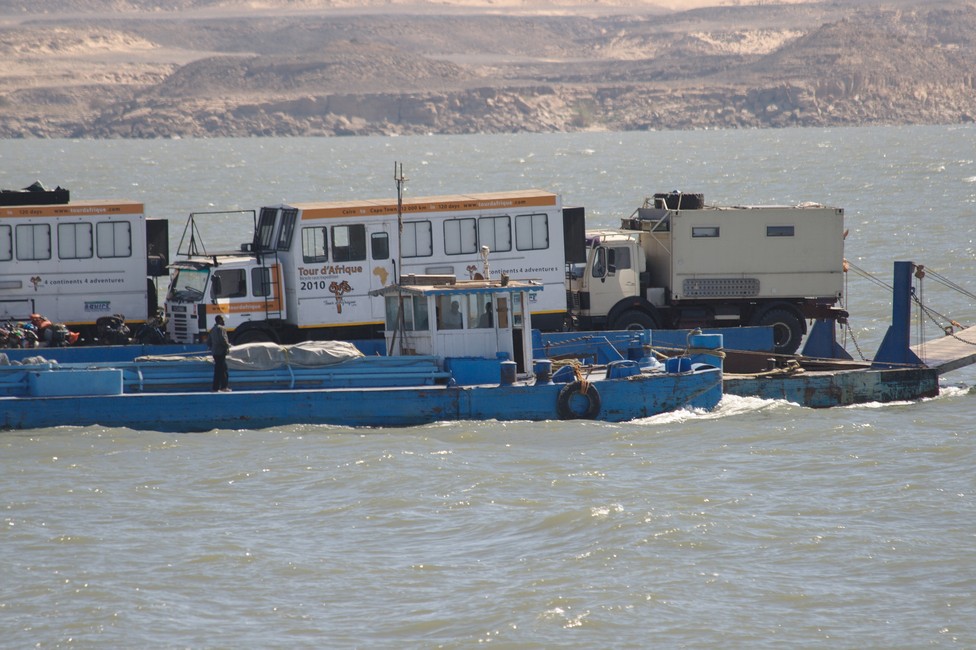
The port of Wadi Halfa, we have imagined really differently. It is only a strip of sand, in front an old body of a vessel is anchored there, our passenger ferry is fixed to it. Welcome to the Sudan.
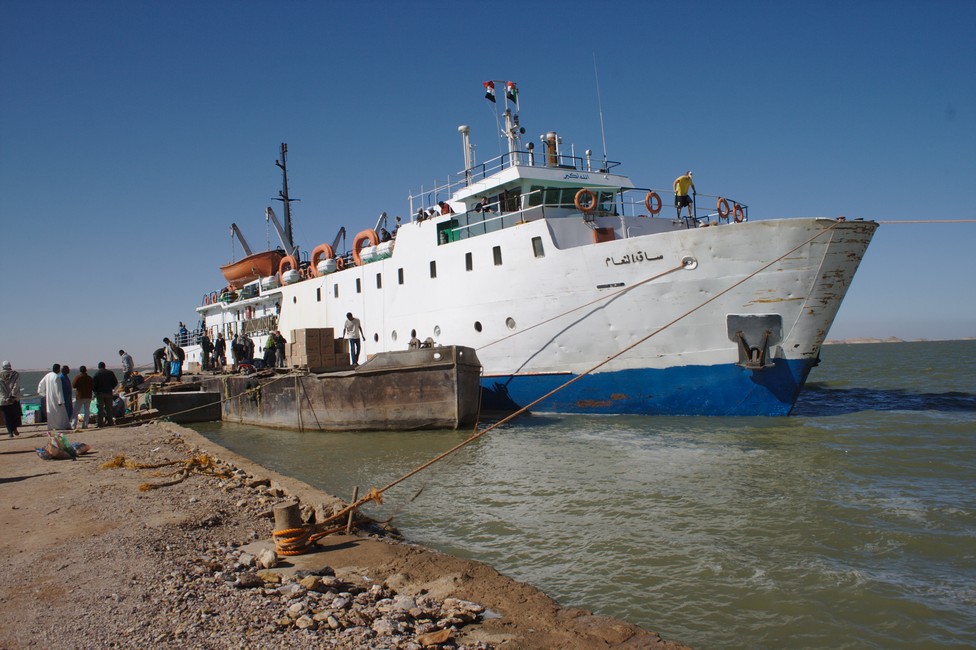
The mooring is trouble free, not at least because we had a fixer again, a nice guy, we can recommend, called Mazar Mahir. We get our passports back and after about an hour, we have Sudanese ground under the feet.
To our delight, our dog has survived in quite good condition we swear to Allah we will never do that again, the captain has fed her plenty, a month’s portion and watered her properly, and she makes no impression of being stressed. The vet first wanted to examine our dog first, but when he saw her, he was thinking she is dangerous, so he just prepared the papers for her.
Since it is late, we are looking for a bush camp in the desert, Bruce and Petra join us.
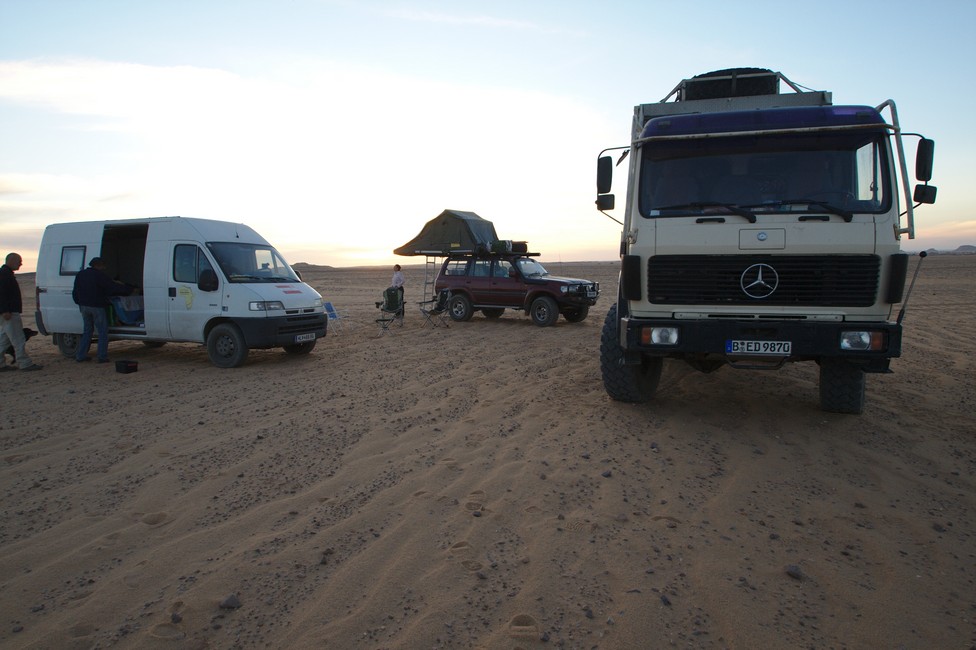
They live in England, but are from Africa. Bruce from South Africa, Petra is from a German family in Namibia. They use their trip for a visit to relatives. They spend their nights in their roof tent.
Tara enjoys being back with us after this adventurous voyage.
We still sit comfortably together and discuss our experiences on board the ferry. We still must go to Wadi Halfa for some paper work.
Next morning we are on the road again. From Wadi Halfa we drive on good tarmac in direction to Dongola. The landscape is fascinating and we are glad to be back on solid ground.
We knew very little about Sudan, so we are always amazed about the mud architecture and how buildings are built from this material.
We want to penetrate deeper into the mysteries of this country and turn off the asphalt road to drive closer at the Nile River.
The dirt road is good, solid ground, barely sandy passages and so we are making good progress. We already hold out for an overnight stay.
We want to find a place on the bank of the Nile River, which is not be visible from the road so we can spend a quiet night.
We find the seemingly perfect spot, overlooking the river, beautifully lonely. We get out to take pictures and prepare for a quiet night.
But it takes less than five minutes and we are attacked by insect swarms. They do not sting, but are annoying and we flee quickly in our vehicles. Later we will learn that here at the moment there is a fly infestation and the locals need to protect their faces with nets, that not thousands of flies get into all body openings.
It is a pity as it would have been a perfect setting for an overnight bush camp.
Wonderfully painted houses line the old main street. Before tarmac was attached this was the main route to the Sudan, the gravel road leads straight through the villages. Since the tar road villages are likely to suffer a little, as the business passes by their villages.
Finally, we find a place, but it’s getting late and we go to bed, we do not even notice the good view.
Only the next morning, we recognize the idyll. The Nile flows leisurely around an island out of stones with sand banks. A paradise.
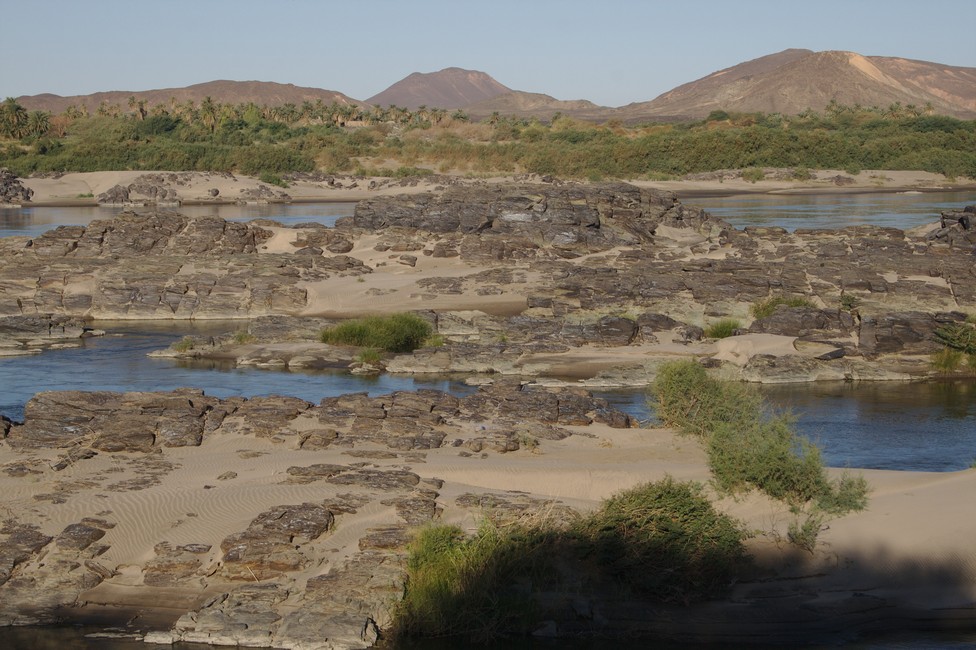
Only the rattle of a gasoline generator or a pump disturbs the idyll. We look at where the sound comes from and meet a group of men who by means of a pump, pump water from the Nile into tankers. The hospitality of the Sudanese people is great and now we sit with them and drink tea.
From hibiscus flowers they prepare good tea. The flowers are boiled in a kettle.
Since we do not speak Arabic, our conversation is limited to simple things that can be expressed also with hands and feet.
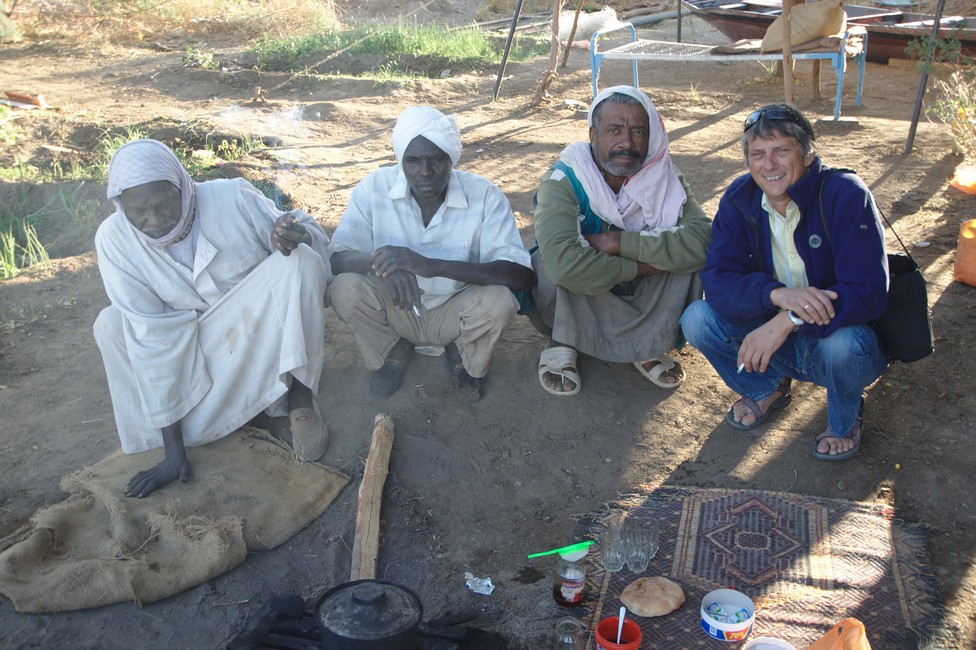
Finally, the tea is poured into typical glasses, sweetened with strawberry jam and ready is breakfast tea.
We sit a while with the men and talk about this and that and enjoy the view of the Nile.
We are once again surprised by how friendly people are here. We need to straighten our image of Sudan in our head, so much negative reports are on this country and its people, mostly from a very narrow perspective, which distorts the image and prejudice can arise that is out of place and inappropriate.
We take a look at the floods of the Nile and make our way because we want still come to Dongola.
The route winds through many villages along the Nile, so far we have only seen small towns in Sudan, Dongola is to be a major city, where we want to add stocks and look at the place closer. We are already very excited.